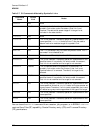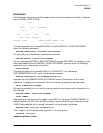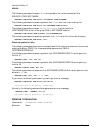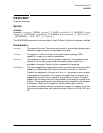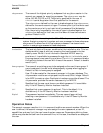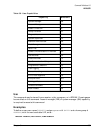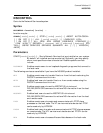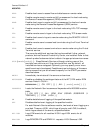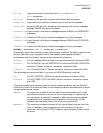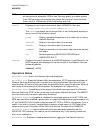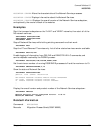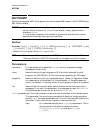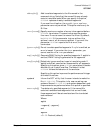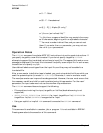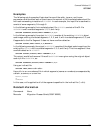
398 Chapter 5
Command Definitions L-O
NSCONTROL
RFAL Enables local users to access files and data bases on remote nodes.
RPM Enables remote users to create and kill processes on the local node using
the Remote Process Management (RPM) service.
RPML Enables local users to create and kill processes on the local and remote
nodes using the Remote Process Management (RPM) service.
VT Enables remote users to logon to the local node using HP's TCP message
mode.
VTA Enables remote users to logon to the local node using TCP stream mode.
VTL Enables local users to log onto remote nodes using the REMOTE HELLO
command.
VTR Enables remote users to access local terminals using the Virtual Terminal
service.
VTRL Enables local users to access terminals on remote nodes using the Virtual
Terminal service.
There may be additional services that can be enabled if other network
products, such as Personal Productivity Center, are installed. Refer to that
network product's documentation to obtain the appropriate service names.
STOP [=service [,service]...]... Stops Network Services, although existing users of the
service(s) can continue until they terminate their use. By default, all
installed services are stopped. Optionally you may specify one or more
specific services to be stopped. Possible services include any of the same
service names that you are allowed to specify for the START parameter
described above.
ABORT Immediately terminates all the servers and services.
AUTOLOGON Enables or disables the autologon feature of the NFT, RFA and/or RPM
services. Default: ON,ALL.
AUTOLOGON= [ { ON OFF } ] [ { ,ALL [ ,service[,service]] }]
LOADKEYS Loads the Network Service command keywords while NS/3000 is active.
LOG=
[ { ON OFF } ] [ ,ALL ,RPM ,ENV ,DSDAD ,DSSERVER ,V
TSERVER][{ ,LOW ,HIGH } ]
ON Enables detailed event logging of the specified module.
OFF Disables detailed event logging of the specified module.
For each Network Service software module, two levels of event logging are
provided. These are HIGH, which logs all events, and LOW, the default,
which logs a subset of the events, as specified below.
ALL LOW Logs LOW events for all modules. HIGH Logs HIGH events for all
modules.
RPM LOW Logs RPMCREATE and RPMKILL requests. HIGH Same as LOW.



